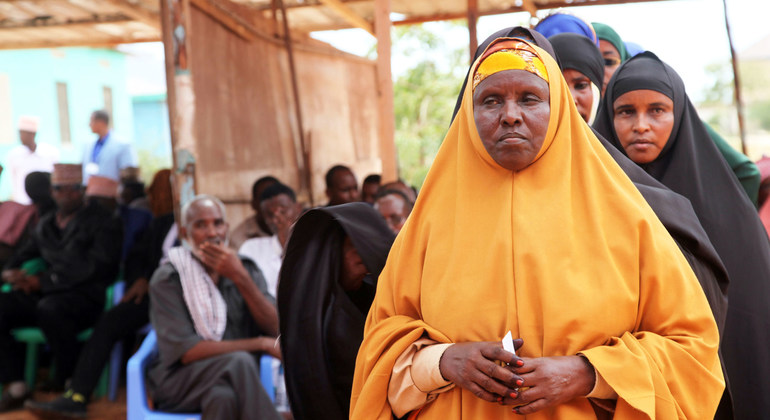Unresolved issues surrounding parliamentary quotas, and women’s participation in elections in Somalia were highlighted by UN Deputy Secretary-General Amina Mohammed in the Security Council on Tuesday, with the aim of increasing their involvement in the political process.
Briefing ambassadors under the Women, Peace and Security agenda, she said that her most recent trip, earlier this month, was aimed at boosting women’s involvement, including in upcoming parliamentary elections.
“I made this second visit to Somalia because women’s political participation is a game changer in our efforts to achieve sustainable peace, development and more resilient and inclusive societies”, said Ms. Mohammed, stressing that a 30 per cent quota is a crucial first step towards the equal representation of women in all sectors of life – from business to public service, and from elections to appointments.
Election roadblocks
She said there was real concern that women’s representation in the current elections will decrease.
The deputy UN chief painted a picture of an array of roadblocks for female candidates, which she observed are often impeded by rural tribal leaders, all of whom are men.
She highlighted that Somalia’s political environment is not conducive to women, with many male leaders promoting male candidates through political networks and connections that their female counterparts lack.
Somali women also struggle to access financial support to run campaigns – challenges compounded by violence and discrimination, she added.
Promises fall short
The Deputy Secretary-General cited the country’s 2016 milestone that nearly a quarter of parliamentary seats were occupied by women, noting that those figures “demonstrate that progress is possible even in the most difficult circumstances”.
While expressing confidence in recent commitments by Somali leadership to maintain parliamentary quotas, Ms. Mohammed expressed concern over the general conditions.
She stressed that the Organization must “redouble” its efforts to support their participation.
“Keep a sustained focus, investments and partnership for the women of Somalia”, the deputy UN chief appealed to the Ambassadors.
Putting country first
Meanwhile Shukria Dini, Co-founder and Executive Director of Somali Women’s Studies Centre, noted that Ms. Mohammed’s visit left many women “more encouraged and energized” to pursue participation issues, which have democratic and human rights origins.
She spoke of “straightforward demands” regarding parliamentary seats, protection for women candidates and the rejection of male candidates who sought seats reserved for women candidates.
“Women’s participation in elections and political processes is critical to realizing an inclusive society” with more women in decision making roles and with the authority to allocate resources, said Ms. Dini.
And because Somalia’s national election should be seen as promoting peace, security, women have been appealing to all parties to “set aside their political rivalries…for the sake of the country”.
